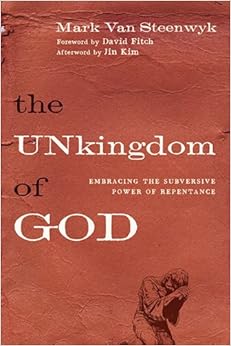I read this book a few weeks back - The Unkingdom of God by Mark Van Steenwyk (I reviewed it, in part). The book deals a lot with the notion of Empire - not just its political manifestations, but the way the Spirit of Empire infuses itself into culture, economics, religion, etc. At its core, Empire is the belief in one's right to control others; an empire is a nation committed to influencing the affairs of nations and people outside its own borders.
I think about the historical example of medieval China. The Chinese had a bigger, stronger, more capable fleet of sailing ships than anything in Europe. They regularly traded as far as the eastern coast of Africa before Columbus was even born. At some point, though, Chinese leadership decided it was better to focus domestically and gave up sailing the seas with the same intensity.
If things had gone differently - if China had continued to expand its empire - likely it would have been Chinese vessels rounding the Cape of Good Hope rather than Vasco Da Gama coming the other way. The Chinese might have established trading hubs in Lisbon or Portsmouth rather than the Portuguese and British in Macao and Hong Kong. History would have been quite different.
Empire is not strictly about size, but the way in which we leverage that size or even the pursuit of size (and accompanying power) itself.
While reading Van Steenwyk's book, I couldn't help but think of the evangelical church of the past thirty years. My tribe, specifically, was caught up in what's known as the Church Growth Movement, in fact, for a while our motto was, "Our Church Can Be Your Home." We had incentive to bring in as many people as possible - and pretty free rein to do it in any way that produced results.
This lead to worship services as entertainment, professional staff pastors catering to different interest groups and filling the social calendar. It led to a more passive membership (nothing too serious, then people might leave). It also led to huge attendance increases and greater influence.
It really is the Spirit of Empire. Bigger is better. More people, more attention, more influence. What's the harm when we're influencing for good?
What we didn't learn too well in the 70's is that the medium is the message - the way we bring people in is the ethic to which we're converting them. Church Growth strategies worked really well because they tapped into the natural inclination of American culture - a culture already steeped in Empire.
The US has been essentially running the world since the 1940's. Our empire isn't geographic like the British Empire of yore, but it's political and economic. Our size produced influence, expansion, growth. Our consumerism feeds the beast, as it were, pushing the notion of empire.
Our congregations played right into this. The political power of the Religious Right gave voice to people who always thought themselves a silent majority. TV brought exposure for preachers with charisma and media savvy. Sunday worship became a competition for the eyes and ears of people. It was only natural.
That doesn't make it good.
Our desire to conquer is a cultural desire, it's bred into us from the moment we're born. We need to recognize it, name it, and renounce it. As Christ's people, we're not conquerors - at least not in the way of Empire. On the cross, Jesus conquered by losing, by confusion, by demanding so much of his followers they all ran away.
Every opportunity Jesus had to take hold of power or force, he ran from. Empire is not the way of the Kingdom. There's nothing wrong with a large congregation, but beware our attempts to become one.
China never ceased to be influential. They lost the power of position they might otherwise have held. Those nations which embraced the Spirit of Empire came and conquered, carrying off riches and knowledge that China might otherwise have capitalized on. Choosing against Empire was a choice away from self-determination (whether they knew it or not).
Empire is a great way to retain control. Of course, human control of anything has never really worked out well; it's certainly never been part of God's ideal plan for life on this planet. Superintendency, service, yes - God gave us a lead role to play - but always one in service of the other.
Empire is a spirit of self-promotion. We often fool ourselves into thinking our aims are pure - freedom, justice, democracy, evangelism, morality - but in the end, what speaks louder than our motives are our actions.
The medium is the message. Not great size and strength, but humility and service.

No comments:
Post a Comment